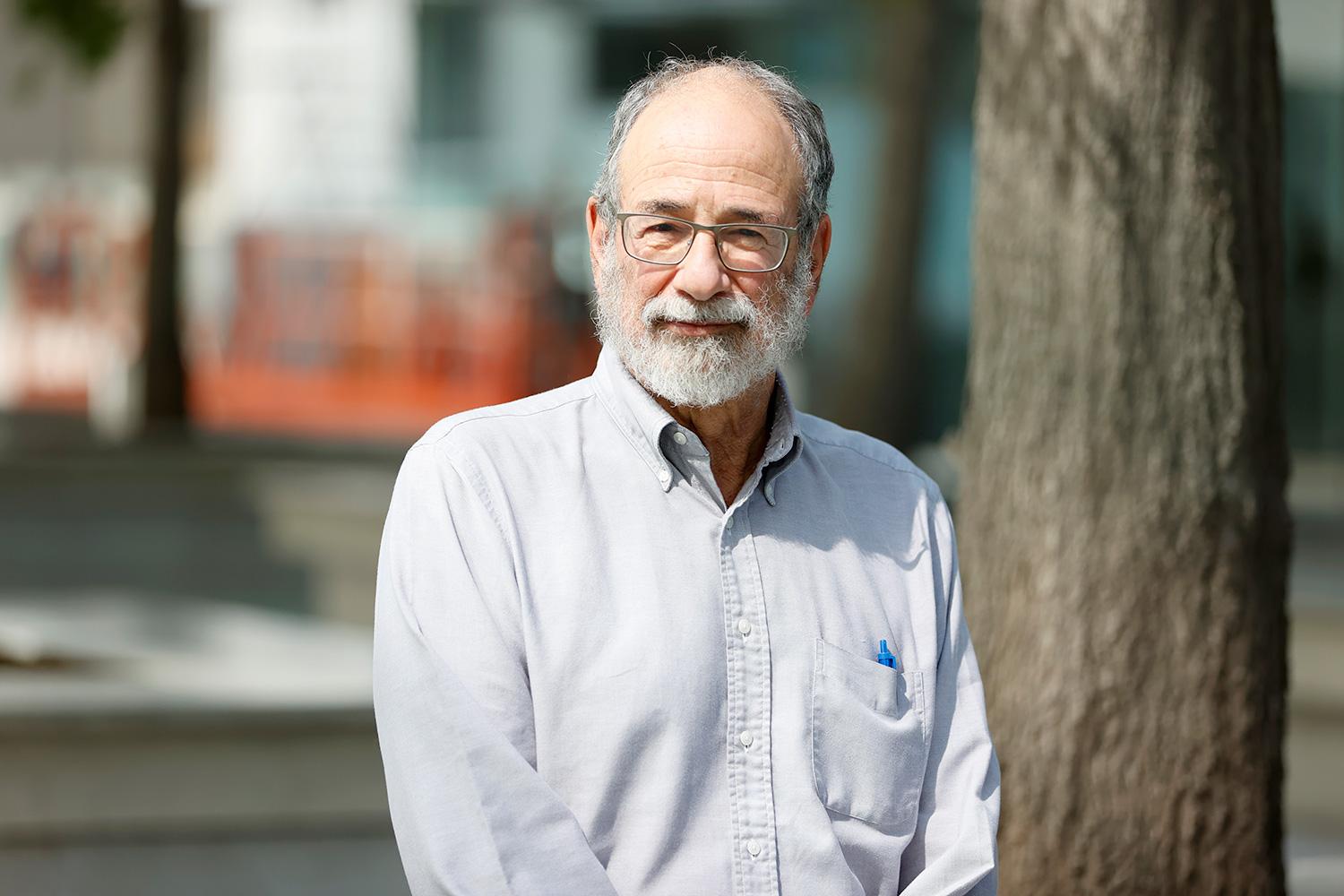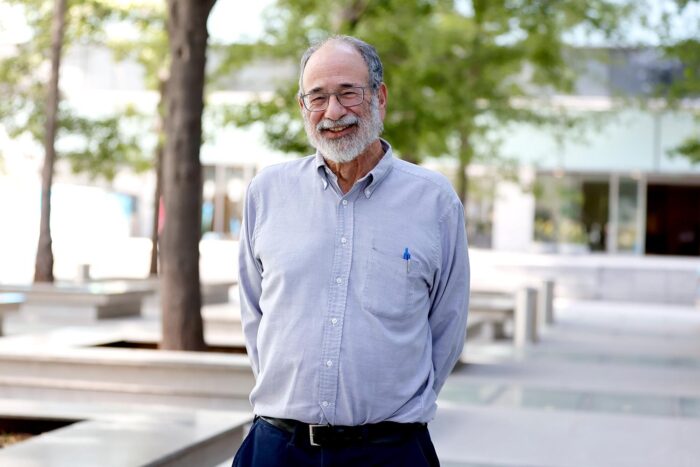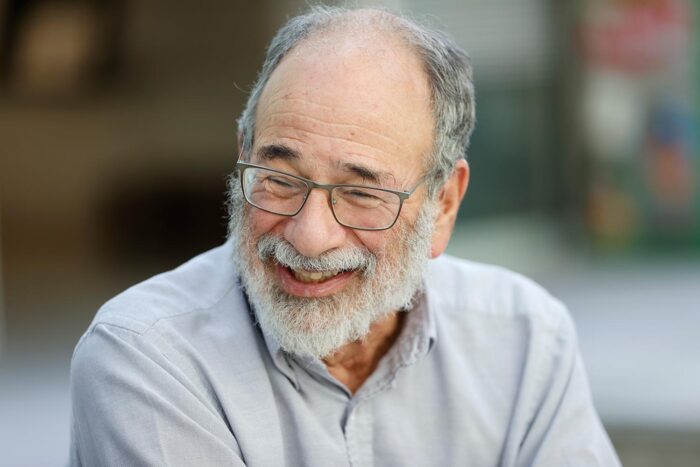
The research of the American academic, visiting the campus where he will give a keynote talk this Wednesday, December 20, has left a deep mark on social applications with global impact, from the efficient exchange of kidneys to the optimization of the School Admission System (SAE). ) in the country, demonstrating its commitment to the improvement of society through the economy. “I think that in Chile the focus should be on alleviating and abolishing poverty rather than on the degree of inequality,” he says in this interview with Prensa Uchile.
From Silicon Valley to the University of Chile. The 2012 Nobel Prize in Economics, Alvin Roth, has been invited by the institution to share his experience and knowledge in a series of activities. This Wednesday, in the Hall of Honor of the Central House, Roth will give the long-awaited international talk “Who gets what and why: The new economics of market design?”, an event organized by the Millennium Institute for Research on Imperfections of Markets and Public Policies (MIPP) and the Center for Mathematical Modeling (CMM).
Roth’s presence takes on additional value when considering the practical applications of his research in everyday life. His outstanding work in game theory and experimental economics has not only left a mark in academia but has also had a significant impact on society. One of his most notable achievements is his contribution to the field of organ donation, specifically in the design of efficient systems for the exchange of kidneys between donors and recipients.
Furthermore, in the Chilean context, the influential work of the 72-year-old Nobel Prize winner is reflected in the algorithm of the School Admission System (SAE), a crucial tool that directly affects thousands of students and their families in the process of admission to the country’s educational institutions. The system is based on a sophisticated computational algorithm programmed and implemented by academics from the Department of Industrial Engineering (DII) of the Faculty of Physical and Mathematical Sciences, FCFM, of the University of Chile; along with the participation of three centers of excellence: the MIPP, the CMM and the Institute of Complex Engineering Systems (ISCI).
“Chile is one of the world leaders in exploring methods for assigning children to school. So school choice is something the country is successfully experimenting with. And I think that a lot of progress has been made,” says Professor Roth, an academic at Stanford University, in this interview with Prensa Uchile, who adds that – of course – “fixing how children are assigned to school does not eliminates poverty, it does not solve everything, but sometimes the way to move forward is to do it little by little. And I think Chile is admirable in that sense, in the choice of school.”
One of the things I will talk about here is that organ transplantation is one of the things that I have studied, and in this matter, Chile is not a world leader. In part it is because Chile is a small country, there are only 20 million Chileans. I have been to Argentina and Brazil, and it seems to me that it would be useful if there could be international collaboration in South America, particularly with the organ that is most transplanted, which is the kidneys. So, based on what I have studied on the kidney exchange, it would make a lot of sense for Chile to cooperate with other South American nations.
There is always progress to be made. But it seems to me that the type of debates and progress that are being achieved in Chile are quite healthy. It is also interesting that I was able to be here to see how the last constitutional proposal was rejected. But, you know, having a society that has at the forefront of its discussion what the underlying rules for society should be, I think is a good thing.
Education is very important and the University of Chile is famous. Many of my Chilean colleagues in the United States were educated here; and it’s also a market design center, which is my area of work, so it’s a great pleasure to be here. Much of the work on school choice has been done by the people who organize this conference I’m giving.
So universities have a very positive role to play. In the United States, I live in Silicon Valley and, of course, along with Stanford University and Berkeley University, they have played an important role in the American economy. Before teaching at Stanford, I lived in Boston, where Harvard University and MIT also play an important role in the medical, pharmaceutical, and other economics. So I think part of Chile’s success is having these top-level universities like the University of Chile.
Well, social cohesion is important, so questions about internal inequality in the economy are also important. But I think the focus should be on alleviating and abolishing poverty rather than the degree of inequality. You want everyone to be more prosperous, and many times international cooperation is a very good thing. That’s why I mentioned international collaboration in kidney exchange. But, for example, in winter in the United States, we eat fruit from Chile. I mean, it is perfectly natural that countries seek to cooperate and that this helps in many things.
On the other hand, we saw during the pandemic that supply chains are fragile. So emerging economies need to strike a balance, just like mature economies, between domestic production and international trade.
On the other hand, in general, markets work well when they have rules that allow them to work well. Often the political debate revolves around whether we should have markets or not, or whether there should be rules or not. And I think the answers lie somewhere in between. Of course we should have markets and of course there should be rules about how they work.
Certainly, people who go to college should look for something that they consider important to do and that they like to do because you can’t work hard at things you don’t like. But it’s also hard to work hard on things you don’t think are important. So I think part of going through college is searching and finding what you would like to do, in those two ways: what you think is worth doing and what you enjoy doing.


MIPP Chile 2024